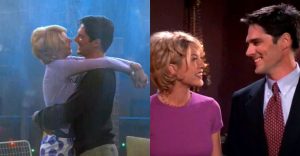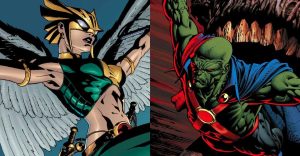Dune Movie’s Long Runtime Defended By Editor

Dune‘s 155-minute runtime made it a better movie than the shorter original cut, says the film’s editor, Joe Walker. After delays due to the Covid-19 pandemic, Dune was finally released in theaters and on HBO Max in October of last year. Directed by Blade Runner 2049’s Denis Villeneuve and starring Timothée Chalamet as Paul Atreides, the film adapted Frank Herbert’s 1965 novel of the same name. More precisely, the film adapted the first half of Herbert’s novel, with Dune: Part Two expected to begin filming this summer and hit cinemas next year.
Though clocking in at a lengthy 155 minutes, Dune’s runtime was not out of step with other pandemic and post-pandemic era blockbusters, including the 163-minute No Time To Die, Spider-Man: No Way Home’s 148 minutes, and The Batman’s mammoth 176-minutes. The film’s length didn’t deter audiences from flocking to see the film, nor critics from heaping praise on Villeneuve’s adaptation. While the Canadian director missed out on a Best Director Oscar nomination, the film has received 10 Oscar nods, including for Best Picture and Best Editing.
Speaking with Screen Daily, the now three-time Academy Award-nominated editor Joe Walker discussed the ins and out of the Dune cutting room. Specifically, Walker remarked how the film’s initial cut was shorter and “faster.” Working alongside Villeneuve, however, the film ended up growing in length. Walker says this was to gain a greater “insight into the [characters’] souls,” including more of Paul’s visions to provide a “sense of destiny and progression.” Read the full quote below.
“There is a faster version you can make of Dune if you wanted to cut back low-hanging fruit. One of the biggest challenges was establishing all the factions and main characters and being able to get insight into their souls before they get thrown into the oven. So the film grew in length and, as a consequence, got better.”
On Paul’s visions:
“…[they] by and large weren’t there in the first cut. That was another thing that emerged, trying to pepper images into the structure, so Paul’s inner life has a sense of destiny and progression.”

Dune’s initial shorter cut might be attributable to Villeneuve and Walker’s experience as director and editor on Blade Runner 2049, a box office bomb whose failure was partially attributed to its lengthy runtime. Herbert’s book has long been viewed as one of the hardest novels to adapt for the screen, partially due to the density of the story and lore of the sci-fi world, which requires time to properly establish. Director Alejandro Jodorowsky’s unsuccessful attempt to adapt the novel in the mid-70s envisioned a 10-hour feature film in order to do justice to the source’s complexity. David Lynch’s 1984 adaptation, on the other hand, was critically panned and disowned by the surrealist director. As part one of a two, however, Villeneuve’s Dune allowed him greater time to flesh out the source’s lore and, as Walker says, the film’s characters.
As recent blockbusters can attest, a shorter runtime does not necessarily make a better film. The two highest-grossing films of all time, Avatar and Avengers: Endgame clock in at 162 minutes and 182 minutes, respectively. More recently, Warner Bros. head Toby Emmerich commented that initial test screenings of The Batman, which then had a shorter runtime, didn’t perform as well as the nearly 3-hour cut currently in theaters. With Dune receiving excellent reviews from critics and audiences, moviegoers can expect 2023’s Part Two to again strike a good balance between adapting Herbert’s complex story and a reasonable runtime.
Source: Screen Daily

















